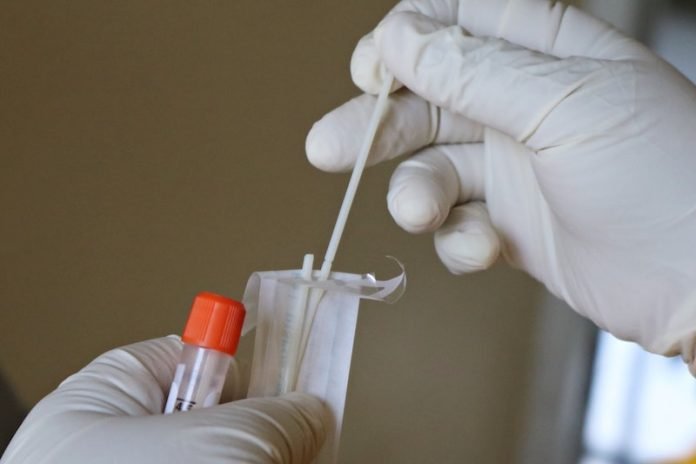
In a new study, researchers have developed a new approach for COVID-19 testing that detects a distinct pattern of immune gene expression in infected people.
This type of test could be used as a check against possible errors generated by the standard tests that directly detect the SARS-CoV-2 virus.
In addition, the gene expression patterns seen in COVID-19 patients shows that, unlike other respiratory viruses, SARS-CoV-2 may suppress immune reactions in the early stages of infection, setting the stage for the virus to spread before patients develop symptoms.
The research was conducted by a team from UC San Francisco and the Chan Zuckerberg Biohub (CZ Biohub).
The immune response to respiratory infections is largely responsible for symptoms like fever, nasal congestion, and cough, which might typically encourage someone to isolate and seek testing.
Because people with COVID-19 are most infectious early in their disease course, this suppressed immune response in COVID’s first stages makes it more likely that people will infect others before they realize they are sick.
Although the new testing approach analyzes completely different molecules—from the person infected, rather than from the virus that infects the person—it can be implemented using the same PCR technology on the same nasal swab samples.
It could be used as a standalone test, or even combined into the same testing panels used in standard PCR tests to detect the virus.
Combining the technologies could lessen the chances of false negative or false-positive results, the researchers said.
The UCSF scientists created three proof-of-concept versions of the new test—one based on readouts of gene activity from three key genes, one based on readouts from 10 genes, and one based on 27 genes.
The tests independently detected COVID-19 infection in clinically confirmed cases, increasing in sensitivity with the number of genes included.
The team says unlike the first SARS-CoV virus, which caused global concern and killed hundreds in 2002 and 2003, SARS-CoV-2 appears to be most transmissible before the onset of symptoms, or just as symptoms first arise, making it more likely that individuals will infect others before they realize they are sick.
However, as is now well known, in a subset of COVID-19 patients, after the virus makes its way down the respiratory tract and infects cells within the lungs, the immune system eventually launches an overly aggressive response that damages the patient’s own tissues.
Intensive-care treatment aims to counter this often-deadly immune reaction, but that does not mean early immunosuppressive treatment would result in better outcomes.
The new findings suggest that treatments that suppress the immune system early during COVID-19 infection are unlikely to be beneficial.
The immunosuppressive steroid drug dexamethasone benefits patients with severe disease, but for those with mild disease, there was a trend toward worse outcomes with treatment.
It may be that changing patterns of gene activation affecting the immune system could help predict which individuals are most likely to experience severe illness as a result of COVID-19 infection.
The research might also lead to the identification of new targets for treatment and new therapeutic strategies.
One author of the study is Amy Kistler, Ph.D., of CZ Biohub.
The study is published in Nature Communications.
Copyright © 2020 Knowridge Science Report. All rights reserved.



